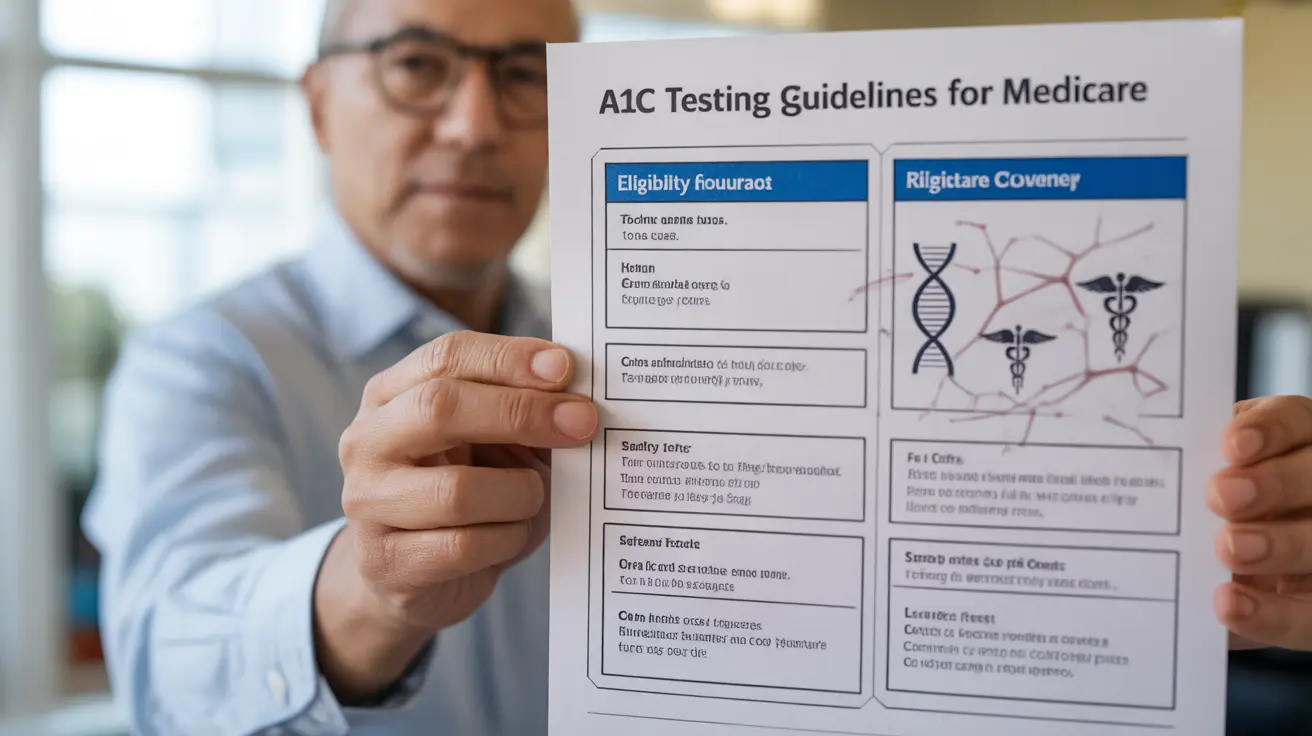Understanding how often Medicare covers A1c tests is crucial for managing your diabetes risk and maintaining your health. These important blood tests measure your average blood sugar levels over the past three months, helping detect and monitor both prediabetes and diabetes. Let's explore Medicare's coverage details for A1c testing and understand who qualifies for these essential screenings.
Medicare's A1c Test Coverage Guidelines
Medicare Part B provides comprehensive coverage for A1c tests as part of its preventive screening benefits. For individuals at risk of developing diabetes, Medicare typically covers up to two screenings per year. These screenings are particularly important for early detection and prevention of diabetes-related complications.
Basic Coverage Rules for A1c Testing
Under Medicare Part B, beneficiaries who meet certain risk factors can receive A1c testing at different intervals:
- One screening per year if you have one risk factor
- Up to two screenings per year if you have multiple risk factors
- Additional tests when medically necessary with a doctor's order
Eligibility Requirements for Medicare A1c Coverage
Medicare has established specific criteria to determine who qualifies for covered A1c testing. You may be eligible if you have one or more of the following risk factors:
- High blood pressure
- History of abnormal cholesterol levels
- Obesity
- Family history of diabetes
- History of gestational diabetes
- History of high blood sugar
Understanding Costs and Copayments
Medicare's coverage for A1c tests is designed to be accessible and affordable. When the test is ordered as a preventive screening, Medicare Part B typically covers:
- 100% of the Medicare-approved amount
- No deductible required for preventive screenings
- No copayment for qualifying preventive tests
Additional Coverage Considerations
If your A1c test is ordered as part of managing an existing diabetes diagnosis, different cost-sharing rules may apply. In these cases, you might be responsible for:
- 20% of the Medicare-approved amount
- Your Part B deductible
- Any additional costs for non-covered services
Medicare Diabetes Prevention Program Integration
A1c test results play a vital role in Medicare's Diabetes Prevention Program (MDPP). If your A1c results indicate prediabetes, you may qualify for:
- Free lifestyle change programs
- Nutrition counseling
- Physical activity guidance
- Long-term diabetes prevention support
Frequently Asked Questions
How often does Medicare cover an A1c test for diabetes screening? Medicare covers up to two diabetes screening tests per year for eligible beneficiaries with risk factors. Those with one risk factor qualify for annual screening, while those with multiple risk factors can receive two screenings annually.
Who is eligible for Medicare coverage of A1c tests to check for prediabetes or diabetes risk? Medicare beneficiaries who have one or more risk factors qualify for coverage. Risk factors include high blood pressure, obesity, family history of diabetes, history of gestational diabetes, and abnormal cholesterol levels.
Are there any costs or copayments for A1c tests covered by Medicare Part B? When ordered as a preventive screening, Medicare Part B covers 100% of the approved amount with no deductible or copayment. However, diagnostic testing may require cost-sharing of 20% plus the Part B deductible.
What risk factors qualify someone for Medicare-covered diabetes screening, including A1c tests? Qualifying risk factors include high blood pressure, obesity, history of abnormal cholesterol levels, family history of diabetes, and previous diagnosis of gestational diabetes or high blood sugar.
How does Medicare use A1c test results to help with diabetes prevention programs? Medicare uses A1c test results to determine eligibility for the Medicare Diabetes Prevention Program (MDPP). If results indicate prediabetes, beneficiaries may qualify for free lifestyle change programs and ongoing prevention support.




